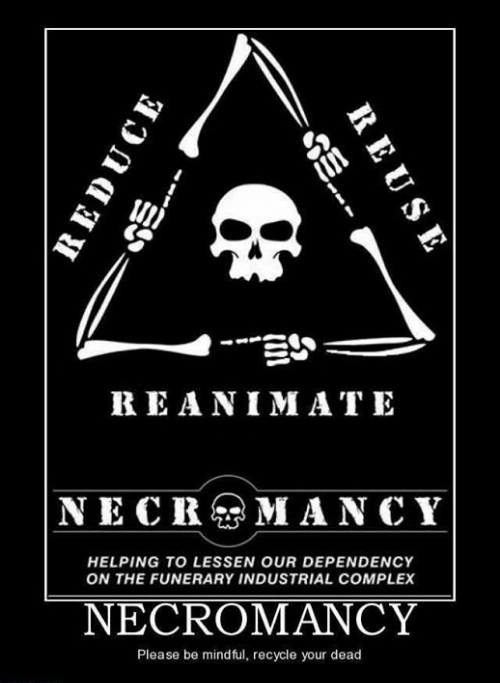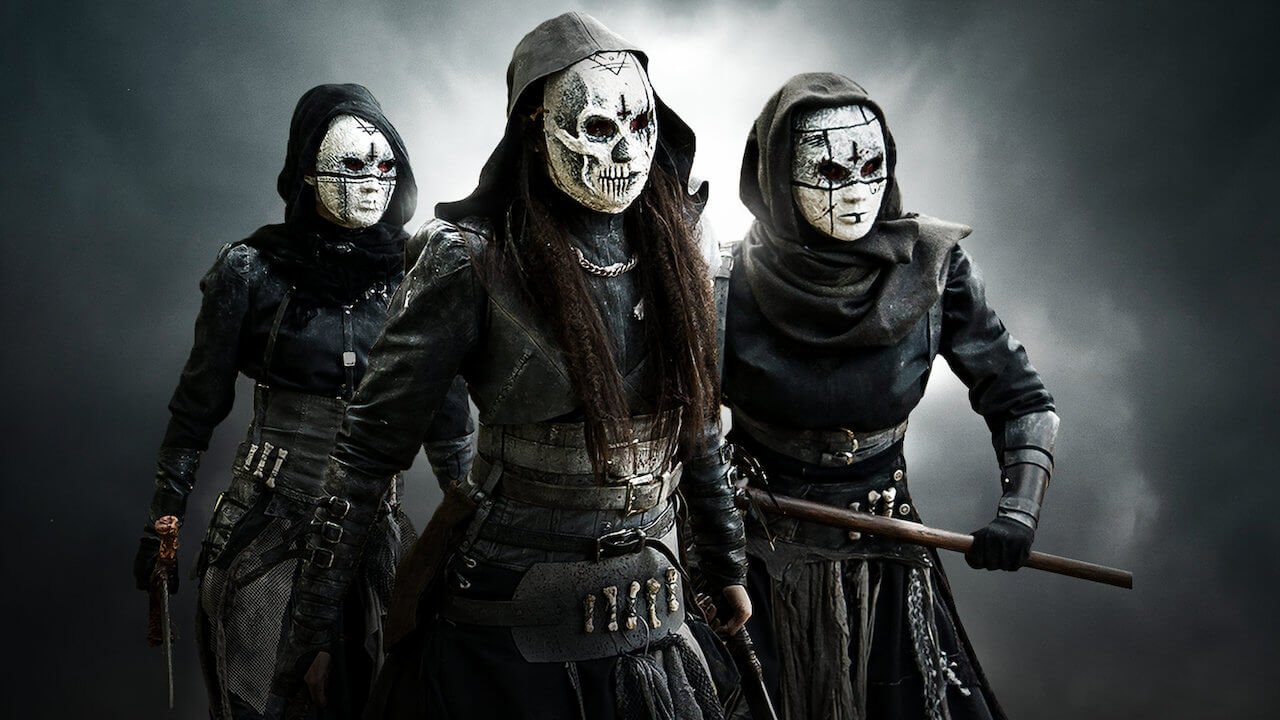Powers born of the grave

Necromancers are unique beings in the world, straddling the line between life and death and exercising power over the world of the living and the world of the dead. This uniqueness has set them apart from others, regardless of whether or not others practice magic, have psychic powers, or any other unique gifts. Necromancy is the power of death channeled through a living vessel and marks the necromancer forever as something different, something stranger, something other.
These differences however also make the Necromancer what they are, and in their strangeness they find both comfort and power. In ancient days it was common practice for Vampires to kill Necromancers whenever they were identified as such, due to the fear that these living vampires might be to exercise power over the undying kings of the night. While this practice has gradually been eased, if in practice only, there may be a reinstatement of it as Necromancers appear to be gaining more substantial powers than they have shown in years past.
Innate Powers & Abilities
- Blood Sacrifice - Necromancers may use ritual blood sacrifice to augment their power levels. This may allow the Necromancer to raise more zombies and control them for longer periods or even raise a more powerful vampire's body during the daytime. The larger or more numerous the sacrifice, the larger the power boost.
- Commune with the Dead - Necromancers have the ability to peer past the veil and into the Shadowlands. They can communicate with the dead around them or near them such as ghosts, poltergeists, zombies, and even vampires during their slumber.
- Control the Dead - This ability allows Necromancers to control dead bodies such as zombies or vampire bodies during the day. Sustaining the control over numerous targets takes a lot of energy and concentration. Typically, this control ends at the next sunrise.
- Longevity - Necromancers take bits and pieces of deathly power into themselves, and as their power grows, their aging slows down. This does not make the necromancer immortal, but they'll retain their youth longer and can live up to 300 years before finally dying of old age.
- Raise the Dead - Necromancers are able to raise the dead for a time as zombies. These zombies do not have souls, but do retain the memories of the person they once were. These memories fade quickly, rarely lasting for more than an hour.
- Rest the Simple Dead - Necromancers are able to lay the dead back to rest, whether they were raised by the same necromancer or not. Doing so usually requires a brief ritual involving salt and a flame. The dead cannot be laid back to rest if currently under the control of another Necromancer.
- Rolling Immunity - Necromancers cannot have their minds rolled or controlled by vampires. They are also resistant to other mental powers generated by vampires.
- Sense the Dead - Necromancers intuitively sense the presence of the dead such as vampires, ghosts, zombies, and ghouls, and can identify the creatures on sight. Necromancers can also sense other Necromancers with this ability. (Note: Necromancers cannot affect ghosts with their powers unless they are Spirit Necromancers).
- Thanatos - Necromancers are intimately bound to the powers of the grave, and also draw their power from the dead, from graveyards, tombs, and mausoleums. When surrounded by the dead or in places that resonate with death and dying, Necromancers grow metaphysically stronger - their abilities become more potent, last longer, and inflict more damage.
- Will of the Necropolis - In the event that a Necromancer is taken as a human servant, the Necromancer is not bound slavishly to the vampire master's will and cannot be commanded like other servants. In addition, Necromancers are resistant to vampire powers or abilities that effect the emotions.
- Specialization - Necromancers choose to deepen their understanding of death and necromancy by specializing into different paths. The paths are Blood, Breath, and Bone, with each path granting unique capabilities and powers to the Necromancer that studies that path. A Necromancer can only ever pick a single path to study.
- Blood - Blood Necromancers gain the following passive power:
Enhanced Dead - Necromancers specializing in Blood raise dead servants that are stronger and faster than regular zombies. These improved zombies rot slower, retain their memories longer and have superhuman strength, speed and endurance equivalent to a shifter. - Breath (Spirit) - Breath Necromancers gain the following passive power:
Ghost Touch - Necromancers that specialize in Spirit are able to use the full range of the necromantic powers against Ghosts. - Bone - Bone Necromancers gain the following passive power:
Bones of Stone - The necromancers body becomes fortified by the energies of undeath becoming more resistant and resilient against injury or sickness.
Weaknesses

- Still Human - Necromancers remain fundamentally human, and are subject to the same frailties of normal human beings in most cases.
- Necrotic Aura - Necromancers are surrounded by an aura of necrotic energies which marks them out to their own kind, as well as to others that have ties to the dead. This aura allows some powers to work on necromancers when they would not normally be able to affect humans.
- Disturbing - Necromancers radiate such a strong necrotic aura that even mundane people can sense it. It set's peoples teeth on edge, a sense of Other, that people can pick up on without ever really knowing why. This can make it difficult for a necromancer to make social connections.
Playing with Dead Things
Some Necromancers enjoy their powers and abilities; others are not very fond of their capabilities or use them for destructive ends. When making a Necromancer we have some questions to think about that might help flush out the characters background:
- When did the Necromancer begin to show its powers?
- Many Necromancers begin to display their powers at a fairly young age, usually to the shock and horror of their parents. When your Necromancer manifested their powers can play a large role in their life.
- What did their family think of the Necromancer's powers? What does the Necromancer feel about their powers?
- Because Necromancer powers tend to manifest at a young age, most necromancers do not gian control, subtle or otherwise, over their abilities until they get older and are able to be taught how to control them. Was your characters family supportive of the necromancers powers, or did they reject the necromancer? Does the necromancer view their powers as a gift, a curse, or tool?
Power Limits
| Power Type | New | Veteran | Master |
|---|---|---|---|
| Unique Abilities | 6 | 7 | 8 |
| Specialization Powers | 6 | 7 | 8 |
| Total | 12 | 14 | 16 |

